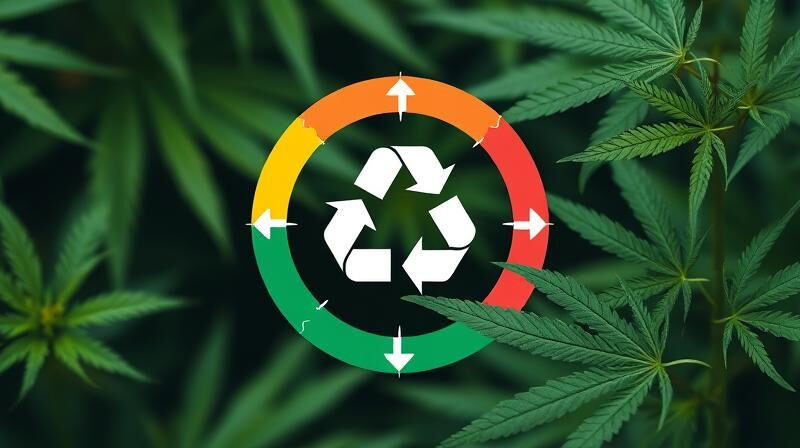As Albania embarks on its journey with the newly approved Cannabis Law 61/2023, which merges the regulations for medical cannabis and industrial hemp, it is essential to consider the implications of this combined approach. While the intention may be to streamline legislation, the conflation of these two distinct categories has lead to significant challenges that undermine both the export market potential of medical cannabis and the rural development opportunities presented by industrial hemp.
Confusion Arising from the Renaming of Industrial Hemp to Industrial Cannabis
One notable change introduced by Cannabis Law 61/2023 is the renaming of industrial hemp to industrial cannabis. This alteration, while seemingly minor, has created additional confusion in an already complex legal landscape. The term “industrial cannabis” may blur the lines between the agricultural and pharmaceutical uses of the plant, leading to misunderstandings among policy makers, farmers, investors and the general public. This ambiguity has hindered the development of clear policies and regulations tailored to the specific needs of each sector, further complicating the legislative environment.
Media Misrepresentation and Its Effects on Public Perception
Additionally, journalists addressing this issue have frequently demonstrated confusion, often neglecting to differentiate between medical cannabis and industrial hemp by simply referring to it as cannabis. This ambiguity in news reporting has contributed to misconceptions among the general public, making the conversation about cannabis legislation in Albania even more complex.
The Case for Reconsidering Legislative Frameworks for Cannabis
Here are several reasons why Albania should reconsider its legislative framework and establish separate laws for medical cannabis and industrial hemp.
1. Distinct Purposes and Applications
The central argument for separation lies in the distinct purposes and uses of medical cannabis and industrial hemp. Medical cannabis is mainly used for its therapeutic benefits, providing relief for various medical conditions for patients living outside of Albania, such as chronic pain, anxiety, and epilepsy. On the other hand, industrial hemp is grown for its fibers, seeds, and oils, which are utilized in a wide range of products, from food to construction materials. By combining these two categories under one legal framework, Albania may oversimplify their varied applications, which could hinder progress in both medical research and industrial innovation.
2. Regulatory Complexity and Challenges in By-Law Creation
The creation of the by-laws under Cannabis Law 61/2023 has faced numerous challenges, particularly in how it conflates medical cannabis and industrial hemp. This confusion has resulted in legal requirements that are overly burdensome for farms looking to cultivate industrial hemp. The stringent regulations designed for medical cannabis, such as extensive safety protocols, quality controls, and security measures, have inadvertently been applied to industrial hemp cultivation. As a result, the costs associated with compliance have skyrocketed, making it prohibitively expensive for farmers to engage in industrial hemp production. Furthermore, the restrictive legal conditions have deterred potential investors and entrepreneurs from entering the market, stifling growth and innovation in this sector.
3. Public Perception and Stigma
The societal perception of cannabis varies widely, with medical cannabis often facing stigma associated with illicit drug use, while industrial hemp is increasingly recognized as a legitimate agricultural commodity. Combining the two in legislation has perpetuated negative stereotypes, hindering public support for both medical cannabis and industrial hemp initiatives. By establishing distinct legal frameworks, Albania can implement targeted educational campaigns that promote understanding and acceptance, ultimately benefiting both medical cannabis and industrial hemp industries.
4. Economic Potential
The economic opportunities presented by medical cannabis and industrial hemp are substantial but distinct. The medical cannabis market is poised for growth as more countries acknowledge its medicinal benefits, while industrial hemp offers avenues for environmental sustainability and product diversification. By treating these sectors separately, Albania can develop policies that maximize their respective economic contributions, fostering innovation and job creation across both industries. This separation can lead to a more robust economic landscape, benefiting the nation as a whole.
The Case for Distinct Legal Frameworks for Medical Cannabis and Industrial Hemp in Albania
The differences in purpose, regulatory needs, public perception and economic potential emphasis present a compelling case for Albania to separate medical cannabis and industrial hemp in its legislation. As the country navigates the complexities of cannabis policy, it is crucial to develop nuanced approaches that recognize the unique attributes and needs of each sector. By doing so, Albania can unlock the full potential of cannabis in both pharmaceutical and agricultural contexts, ultimately benefiting society as a whole. Embracing distinct legal frameworks will not only enhance the effectiveness of regulations but also foster a thriving environment for innovation and growth in both the medical cannabis and industrial hemp sectors.



